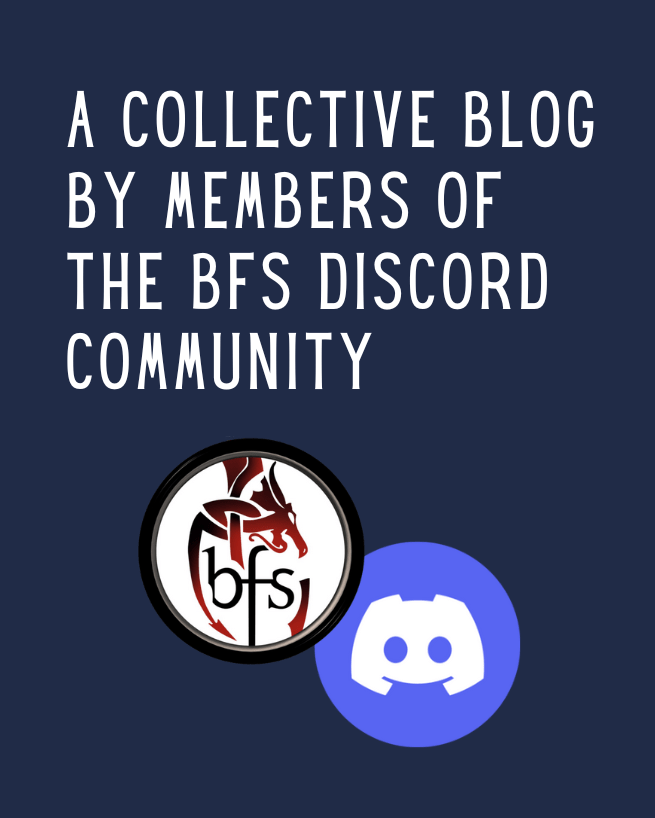Last year we dedicated the entire month of October to our horror members, but our celebration of all things dark had to be truncated this year thanks to a later-held Fantasycon. That doesn’t mean, though, that we haven’t been thinking about you, children of the dark. And if you ask me, the darkness pervades throughout the year, not just at Spooky Season…
So I asked our members to ponder the eternal question: is horror a genre or a mood? And given our membership covers all of speculative fiction, we got some interesting debate happening over in Discord. This page presents the bulk of it, presented as it happened for your delectation.
Give your own thoughts by leaving a comment at the end of this article, or jump back into Discord to get involved. Are you a member but not yet in the BFS Discord server? Contact us to request your invite.
Featuring contributions from:
- Helen Thwaite | Website | Twitter | Instagram | Facebook
- Matthew Palmer | BlueSky
- AK Faulkner | Website | Twitter | Instagram | BlueSky
- Richard Hussey | Website | Mastodon
- Luna Profir
- Graeme Patrick | Twitter | YouTube
- Rosemarie Cawkwell | Website
- Corinne Pollard | Twitter | Instagram | Threads
- David Green | Website | Twitter | BlueSky | Facebook
- Matthew “Womble” Cavanagh | Website | Twitter | BlueSky | Instagram | Threads
- Neil Williamson | Website | BlueSky | Instagram | Threads | Facebook
- Fi Phillips | Website | Twitter | Instagram | Threads | Facebook
- Dan Hanly | Website | Twitter | Instagram | BlueSky | Threads | Mastodon
- Stephanie Ellis | Website | Instagram | BlueSky | TikTok
- Laura Bennett | Website | Twitter | Instagram | BlueSky | Threads
- Vicky Brewster | Website | Twitter | Instagram | BlueSky | Threads
- Stephen Frame | Website
- Cheryl Sonnier | Website | BlueSky | Threads | Mastodon
- Katie Bruce | BlueSky
- Sarah Elliott | Website | BlueSky | Instagram
- Lauren Broughton | Instagram
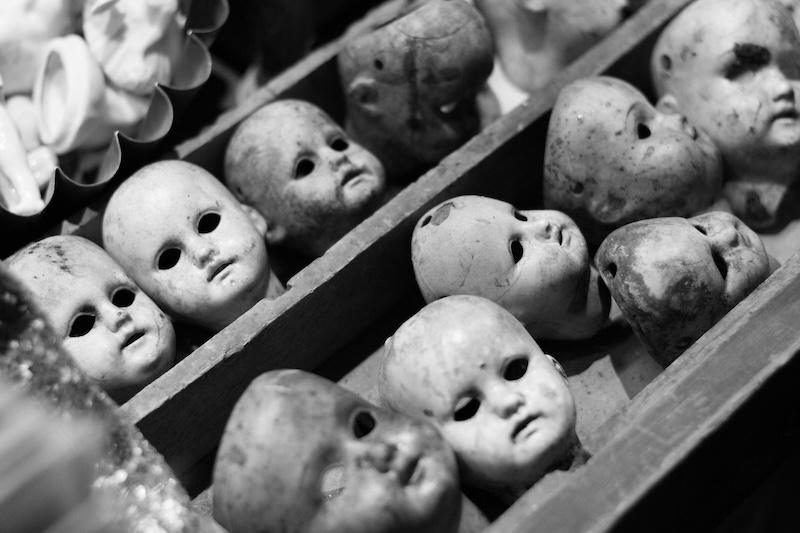
Comments are presented as they were in Discord. Where there was a back-and-forth, comments are presented as the conversation. Where an individual contributor came back with more, those comments have been summarised as one.
Matthew Palmer: “I mean, genre should be a tool not a straitjacket! Horror is unique in the way that it can blend into other genres though.”
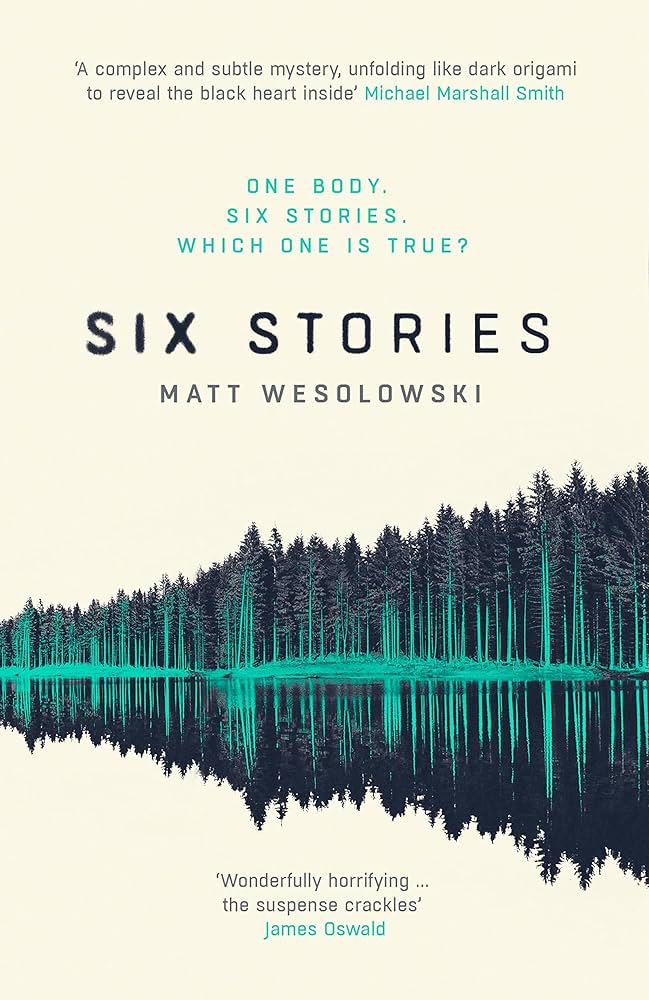
AK Faulkner: “Horror has had to bleed into other genres to survive, really. Domestic suspense, supernatural thriller, these are essentially rebranded horror for modern marketing.
Lauren McMenemy: “Don’t get me started on all those people who ‘don’t do horror’ while they clutch the latest serial killer crime thriller!”
Rosemarie Cawkwell: “I have some good Nordic Noir recs if you ever want to clutch a few serial killer thrillers. Although, come to think of it, Matt Wesolowski’s Six Stories series definitely counts as both crime thrillers and horrors, it just depends on where a book seller decides to shelve them.”
Vecna | Richard Hussey: “It must be a genre, because I don’t have a particular feeling about reading it that is different to reading another genre. I don’t find myself any more horrified than when reading a ‘straight’ fantasy. (This may be entirely a ‘me thing’.)
Luna Profir: “I think horror can be both, depending on what each person classifies it as. Thriller films tend to be marketed separately from horror films, but thriller books are usually same shelf or nearby to horror books. It can be a genre by having traits specific to itself, but it can also overlap with almost every other genre. To be honest, for me, classifying genres always feels similar to diagnosing people with the DSM-V – everyone qualifies for something, and rarely qualifies perfectly for anything.”
Graeme Patrick:
“For me, at least, a horror has to hit certain elements that make it a true horror. You can find some of these elements in another genre, but for true horror, you should be looking to hit all 3 of the 4.
“Brutality – A visceral experience that breaks societal norms. Quick and primal violence, for example, or the reality of an illness that will end you in days. It’s the rubbering necking at an accident. The shock of grim reality breaks through the nicety of our everyday expectations.
“Atmosphere – Tension, dread, the setting is against you, almost a character in its own right. There is no safety, no comfort to be found standing in the unexpected dark waiting for that unknown to find you.
“Helplessness and Humanity – The sheer weight of being unable to to survive what is coming coupled with the emotional loss of a connection you’ve made, the dread of your own imagination of what will happen should the unknown find you.
“Mystery and Wonder – Horror breaks reality of what is expected to be possible. You are left in awe at what happened as it is unexpected, it breaks the rules, and isn’t playing fairly. There are no heroes here, just survivors should you walk away, you’ll always be in a state of awe at having been touched by that unexplainable essence. It is this one that really makes horror a genre and not a mood.”
(Photo by Simon Berger on Unsplash)
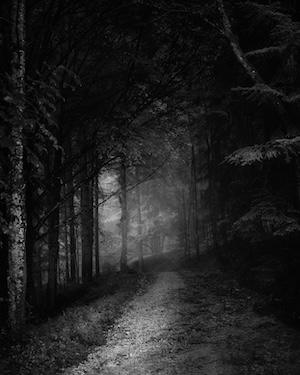
Lauren McMenemy: “Really thoughtful response, thank you Graeme! Given that first point, do you think horror has to be brutal in the sense of blood and guts and gore? Or can it be emotionally brutal in a more subtle way?”
Graeme Patrick: “A bully can be as effectively brutal as any axe.”
Rosemarie Cawkwell:
“Both. Although I usual feel unsettled by horror rather than horrified. I’ll read a crime thriller with the same anticipation of being unsettled as I would a horror novel or short story. I think they draw from the same source. emotionally speaking. The authors are using different settings and tropes to do the same thing – scare the reader and then bring about catharsis. But I read more crime thrillers than I do horror, so don’t give my opinion much weight.
“I think almost every genre has its detractors, because everyone has their own personal taste. For example, I don’t particularly enjoy romance, there are some tropes in romance that I find distasteful, but I know other people do enjoy it and I’m glad they have books to write and read. The problem comes when people decide their opinions and tastes should be universal arbiters of ‘good taste’ and acceptability. My Creative Writing MA course leader didn’t consider fantasy, or any Spec Fic, to be real literature! Only litrary fiction was acceptable to him. He got his nose put right out of joint when 2/3rds of the students did fantasy dissertations.”
Corinne Pollard: “Both certainly. I would like to add this little anecdote that happened to me. I read at an open mic and bravely read some of my horror work which I recall was both spooky and gruesome. A lady came up to me at the end introduced herself and declared she disliked said work. I smiled and said thanks. She frowned and repeated herself. I said You must have disliked it that much though to come and speak to me.”
Lauren McMenemy: “I’d really love to know if other spec fic genre writers get the same disdain from the masses – and from other parts of SFF, to be fair – as horror writers do. Or maybe Corinne Pollard and I have just been lucky.”
David Green: “Anything genre is looked down upon by most writing festivals/bodies/bookstores in Ireland, sadly. There’s definitely a readership in Ireland for all things genre and we all find each other eventually. But genre – especially fantasy and science-fiction – are treated with a lot of disdain still.”
Helen Thwaite: “Romance is massively looked down on and I have been asked if it’s “necessary” for me to include it in my SFF. Yes, it pigging well is.”
Graeme Patrick: “All the best stories are love stories. I can’t think of a better thing I could ruin for the sake of horror.”
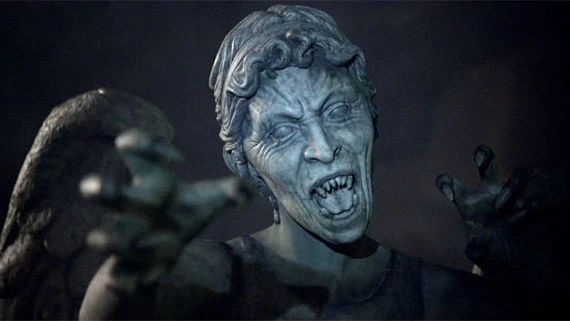
Helen Thwaite: “The best horror picks at the things we hold most dear. Or puts a twist on the mundane. *Eyes the Weeping Angels*.
(Pictured: a weeping angel from Doctor Who; source.)
Matthew “Womble” Cavanagh: “Horror for me is the mood and the key effect it is driving in the reader. The great things is that can be supernatural or something more found in the real world. A lot of horror has been hiding in psychological thrillers and dark fantasy but it does feel with a lot of new major imprints that horror is coming out the shadows.”
Neil Williamson: “Genre is a place in the bookshop you can go to to get the things you know you’ve a chance of liking. Bookshops have horror sections and comedy sections, but they also have loads of other sections whose books may very well contain horrific or comedic stories. So, as others have said, both. But it’s really good to see so many dedicated imprints springing up over the last couple years – it feels like a bit of a boom time again.”
Fi Phillips: “It’s definitely a genre because the book publishing trade has made it that, but it’s also a whole host of moods. Outright terrified. Creepy. Suspenseful and ready for a jump scare.”
Dan Hanly:
“What would you call something that spans genres? Must we create crossover sub genres every time there’s a new interaction in media? (for example, fantasy and horror is regarded by some as Dark Fantasy). However, I think it’s really more complex than that. A ‘genre’ is simply our clumsy attempt to classify art that always exists on a wide spectrum – sometimes the genre can allude to content, sometimes it can allude to mood.
“So I’d argue that a genre is both a ‘content classifier’ and ‘mood classifier’ combined.
“Let’s look at gore-fest slasher fiction, which is clear horror content, but depending on the technical skill of the author, may actually not be scary, which fails the ‘mood’ test – you’d certainly see arguments from some readers about whether or not it should really even be part of the horror genre. Then you could look at a detective crime novel that has some genuine terror moments, which passes the mood test, but in this case, perhaps not the content.
(Photo by Kyle Johnson on Unsplash)
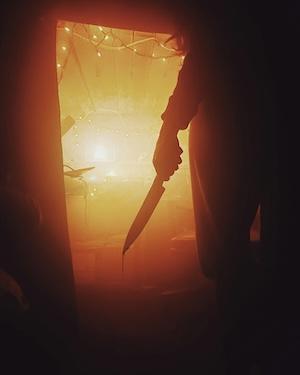
“In short, I think genres themselves are our best guess at finding a home for our art, but art that exists on a spectrum is always going to be tough to classify.
“It ultimately comes down to individual interpretations of the genre: where do you personally draw your line in the sand?
“This is why these awkward subgenres tend to exist, because we’re trying to find a home for something that is sometimes more ephemeral than we give it credit for.”
Stephanie Ellis: “It can be both but I think the whole concept of horror is totally misunderstood or misrepresented. It is not always violent, does not need jump scares but is something that can emerge from the psychology of a person, beliefs, superstition or the simple tragedy of the fact that there are -and always will be- terrible humans around. Horror plays mind games with us, it underpins crime fiction, a lot of classic literature, and personally, I find the vast majority of scifi fits the horror genre! I wish people would stop assuming it is nothing more than blood and gore, and I think the term ‘dark fiction’ is better. I think we might even get more readers if the shelves were re-labelled as such in the bookshops!”
Laura Bennett: “We’ve gotta be able to put labels on things to sell books, sadly. So for me, horror is a genre.”
Vicky Brewster: “It’s an Affect. There you go. Now you have to read The Affect Theory Reader. You’re welcome.”
Stephen Frame: “I’m now curious as to when genres became a thing in fiction writing, and, if genre descriptions magically disappeared over-night, to be replaced by something else, what would something else look like.”
AK Faulkner: “Controversial counterpoint: the horror genre actually doesn’t exist at all, it’s whatever genre it wants to be.”
Cheryl Sonnier: “There’s often a bit of something dark in my writing, even right alongside the most wholesome or humorous happenings. But I think horror is also a genre in its own right too. I grew up (teens) reading John Saul and James Herbert and watching Hammer films on TV with my mam and sister, and sneaking in underage to films like Halloween and Carrie at the pictures. And so my view of horror is coloured by that experience. But you can still have dark fantasy or SF with elements of horror within it (tell me Alien isn’t a horror?!). Not to forget folklore and the old fairy tales that didn’t have happy ever afters.”
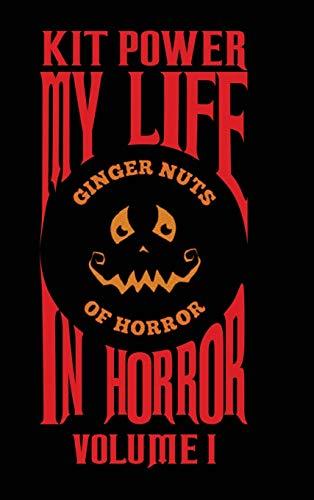
Katie Bruce: “I think Kit Power’s My Life In Horror series demonstrates that horror can be both mood and genre. If you go to the horror section of a bookstore, you know vaguely what you’re gonna get: ghosts, vampires, werewolves, killers etc. But there can be horror in everything. Kit aptly demonstrates this with his essays on finding horror in Indiana Jones, Queen’s greatest hits, Superman 3, and various other films, books, albums and real life events you might not necessarily automatically assume have anything to do with horror.”
Sarah Elliott: “Both a genre and a mood. All genres can be moods but not all moods can be genres. Depends on who is trying sell what and when. Genres can be fleeting, some more than others.”
Lauren Broughton: “I saw an observation that I broadly agree with in that there are two types of genres – the fantasy/horror “vibe” type that are an umbrella of tropes, atmosphere, mood, and the romance/mystery “structural” type that have expected tropes but are more defined by a certain structure that fans defend vehemently.”

